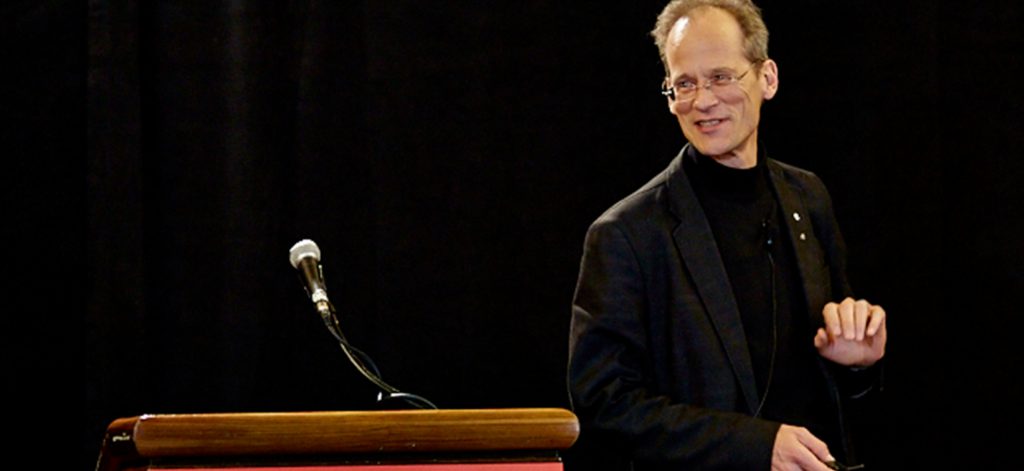By: Eva Voinigescu
28 Aug, 2017

Louis Taillefer (Université de Sherbrooke) was just a young assistant professor at McGill University when CIFAR came calling 25 years ago to offer him membership in their Quantum Materials program (then the Superconductivity program). He took the position and never looked back.
“It had a huge impact on my career,” says Taillefer. “If I am where I am now, it’s because of CIFAR. It put me in contact with the top researchers in my field.”
Taillefer, who investigates why some materials exhibit remarkable electronic properties such as magnetism and superconductivity is now director of the Quantum Materials program. He is one of four Quantum Materials members based at the University of Sherbrooke, two of whom came to the university thanks to a partnership with CIFAR.
“If I am where I am now, it’s because of CIFAR.”
Taillefer has always valued the atmosphere of collaboration that CIFAR fosters and the building of friendship amongst people from different institutions.
“CIFAR is really unique. I know of no other organization that does what CIFAR does, that has the same vision that breakthroughs in research come from people of different perspectives or different knowledge coming together and exchanging it in a free and creative way,” he says.
The resulting discoveries haven’t hurt either. For Taillefer, the collaborations have fueled his research and his reputation. “My most influential work, my most important discoveries were made using materials, samples, that are made at UBC by my CIFAR colleagues,” he says.
In the last decade, he has specialized in superconductors, materials that conduct electricity without any resistance. In his time with the organization, Taillefer has led a team of CIFAR researchers and collaborators in a major breakthrough by observing “quantum oscillations” in a high-temperature superconductor, providing direct insight into the nature of electron behaviour in these materials. His research has won him membership in the Order of Canada and the Ordre national du Québec. He is also the recipient of the 2012 Killam Prize in Natural Sciences and the 2017 Simon Memorial Prize.
These days Taillefer works on understanding how to make superconductors useful for practical purposes such as power transmission, levitating trains, magnetic medical imaging, wireless communications, and much more.
“One of the immediate benefits is that you inspire the very best young minds to stay in Canada and work in Canada.”
But Taillefer’s belief in the organization goes beyond the research it has facilitated. He and his wife are also donors, giving back to the network that has given him the space to foster some of his most innovative ideas.
“The five-year pledge that my wife and I decided to make is really based on our sense that CIFAR is making Canada a world leader on the frontier of knowledge,” he says. “We’ve seen it time and time again. CIFAR really gets Canadian researchers at the top of the world map in some key research areas. One of the immediate benefits is that you inspire the very best young minds to stay in Canada and work in Canada.”